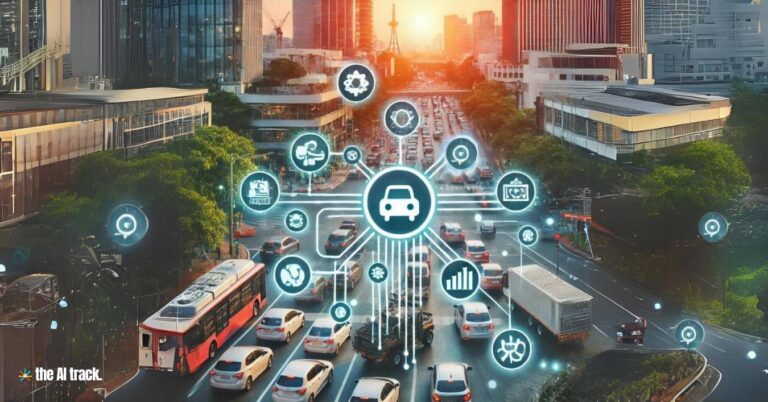Google AI’s Project Green Light AI aims to reduce traffic emissions and improve traffic flow by optimizing traffic signals, while an AI system is being used to set variable speed limits on a US freeway to manage traffic more effectively. Meanwhile, Michigan is advancing its smart highway initiatives with a 25-mile corridor for connected and automated vehicles on I-94.

Google’s Project Green Light AI – Key Points
- Google’s Project Green Light AI:
- Objective: Reduce traffic-related emissions by 10% and improve traffic flow efficiency.
- Technology: Uses AI to optimize traffic signal timing across multiple intersections.
- Pilot Projects: Since their first pilot in 2021, the team has tested more intersections and developed more accurate predictions, expanding Green Light to over a dozen cities, including Rio de Janeiro, Seattle, Bengaluru, and most recently, Boston.
- Dashboard Development: The team developed a comprehensive dashboard to easily share recommendations and analytics with partner cities, while continuing to monitor for any new needed changes.
- Implementation: Early results from pilot projects show promising reductions in congestion.
- AI in Variable Speed Limits:
- Implementation: AI is controlling variable speed limits on a 27-kilometer section of the I-24 freeway near Nashville, Tennessee.
- Functionality: Adjusts speed limits based on real-time traffic conditions to prevent phantom traffic jams and improve safety.
- Performance: Google’s Project Green Light AI operates with 98% accuracy, switching back to manual control if large speed changes are required.
- Research: Ongoing analysis to determine the impact on traffic efficiency and driver safety.
- Smart Highway on I-94 in Michigan:
- Objective: Develop a 25-mile corridor for connected and automated vehicles (CAVs) to enhance traffic management and safety.
- Technology: Equipped with sensors and communication systems to support autonomous and connected vehicles.
- Goals: Improve transit access, reduce traffic congestion, and enhance safety through real-time data sharing between vehicles and infrastructure.
- Impact: Expected to be one of the first in the nation, setting a precedent for smart highways and modern transportation systems.
Why This Matters: Both initiatives highlight the potential of AI to transform urban infrastructure and transportation. Google’s Project Greenlight AI aims to reduce emissions and traffic congestion, contributing to environmental sustainability. The AI-managed speed limits on freeways demonstrate a new approach to improving road safety and traffic flow, potentially setting a precedent for future transportation systems. Michigan’s smart highway project underscores the future of connected and automated vehicles, showcasing advancements in transportation technology and infrastructure.
Read a comprehensive monthly roundup of the latest AI news!
The AI Track News: In-Depth And Concise
Sources
- How Google uses AI to reduce stop-and-go traffic on your route — and fight fuel emissions | Google , 29 July 2024






